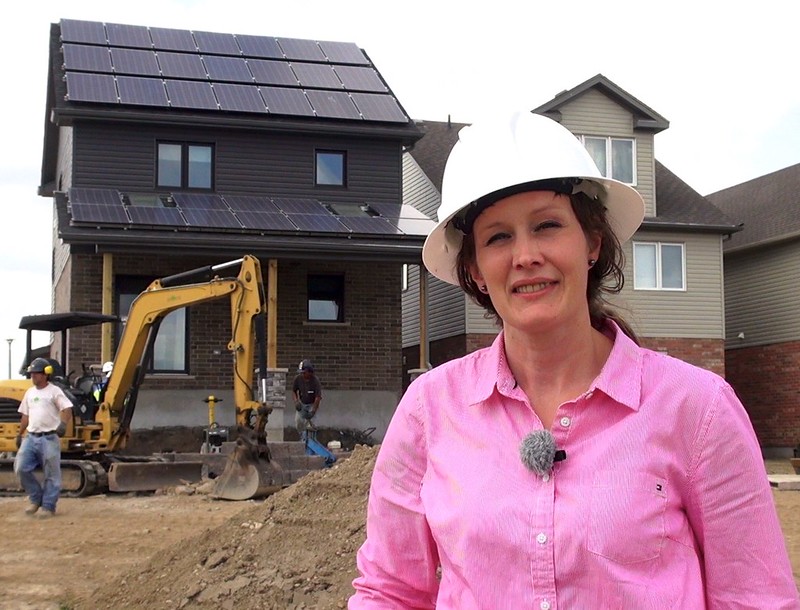Derby Day As 526 New Homes Get Go Ahead For County
The Vistry Group has completed the acquisition of the 47-acre site in Boulton Moor, Derby which will allow 526 new homes to be built. This plans for the...
Read Full Article
There has been a mixed response to the government’s levelling up and planning reforms announced by Prince Charles in the Queen’s Speech – which have already seen a Tory backlash.
The Levelling Up and Regeneration Bill has already taken a bashing and is not the same Bill as Minister Michael Gove had wanted to put forward and it is only passingly similar to a Bill produced last year such was Tory anger at the prospect of making it supposedly easier to build new housing estates but harder to get planning consent for extensions.
Conservatives are blaming the proposed planning reforms for the losses they suffered at the local elections – but seem in favour of a scheme put forward by Gove where communities via ‘street votes’ can vote to approve or veto an extension.
The ridiculous plan could see noisy neighbours denied their extension by those with a vendetta.
Vanishing act
Richard Smith, a partner at Sandstone Law told The Installer and The Fabricator: “The government’s wide-ranging Planning reform White Paper was published in August 2020 and was heavily criticised. It has since vanished into thin air. A Levelling Up White Paper was published in February 2022 and now forms part of the legislative intentions for the 2022-23 session of Parliament in the Levelling Up and Regeneration Bill.
“The government has also stated its wish to reform developer contributions by the introduction of a new Infrastructure Levy. However, there is a danger that this could become overly complex, holding back development in some locations and undermining the promise of levelling up in key places.
“The paper also includes continued commitments to brownfield land restoration that should go some way to levelling the playing field between green and brownfield development. Unless brownfield development can be made to work better for all kinds of developers, there will inevitably be more urban sprawl.”
Local Government Association
A spokesperson for the LGA said: “Councils are granting permission for 9 in 10 planning applications and are not a barrier to development, yet over 1.1 million homes given planning permission in the past decade are still to be built.
“Councils want to work with government to reform and strengthen our planning system, ensuring it is locally-led and delivers sustainable development so that communities can shape their local areas and ensure that the right infrastructure (such as schools and roads) is in place. To meet the Government’s target of building 300,000 new homes a year, councils need to be given the powers to get building homes not seen on a scale since the 1970s.
“This is backed by Parliamentarians with eight in 10 MPs (80 per cent) we surveyed saying councils should have more financial freedoms and powers to build homes in their area.”
Federation of Master Builders
The government has missed a further opportunity to introduce a strategy to decarbonise the nation’s homes but has renewed its focus on improving the planning system and enhancing the UK’s skills offering, said the Federation of Master Builders.
Brian Berry, CEO, said: “With serious and widespread economic uncertainty on the horizon, this year’s Queen’s Speech, marked another missed opportunity for the government to set out a credible plan to green our homes for the future.
“There remains no credible plan to decarbonise our nation’s existing housing stock. While a 0% VAT rating on energy efficient home improvements was a step in the right direction at the Chancellor’s most recent budget, this measure alone cannot achieve the level of decarbonisation required to meet net zero by 2050.”
On planning and housing, Berry continued: “It was good to see a renewed focus through the Levelling Up Bill, on planning reform. Small, local housebuilders have been producing fewer and fewer homes for decades, with those in the market facing significant barriers to their work.
“I hope to see significant improvements to reverse the decades-long decline of SME housebuilders. These local building firms play a vital role in their local areas, employing school leavers, building good quality homes in the local vernacular and reinvesting their success back into their communities.”
RICS
Jonathan Hale, head of government affairs at RICS, said: "We understand the wish to bring empty property back to life but those opening for business on high streets will need to meet the needs of the wider community. Government highlighted community led levelling up and planning in the speech but forcing landlords in such a blunt way, may not fit with this vision. Landlords do not want empty properties, but fit outs, planning permission, and insurance need to be considered as high streets necessarily evolve.
“We are pleased, that the Levelling Up Bill will be led by community driven planning. However, we are disappointed that planning has been side lined - we have supported root and branch planning reforms and now look forward to seeing where government’s level of ambition for a reformed planning system is.”
"We also call on Government to include financial incentives and government policies that support the renovation and upgrading of commercial assets within the levelling up actions, importantly including to hit net zero ambitions. Well-managed commercial real estate boosts less developed areas, and promotes economic growth and social value*. Building communities, backed up by locally led commercial real estate is central to achieving levelling-up.”
Picture: The Levelling Up and Regeneration Bill has been welcomed and criticised.
Article written by Cathryn Ellis
11th May 2022